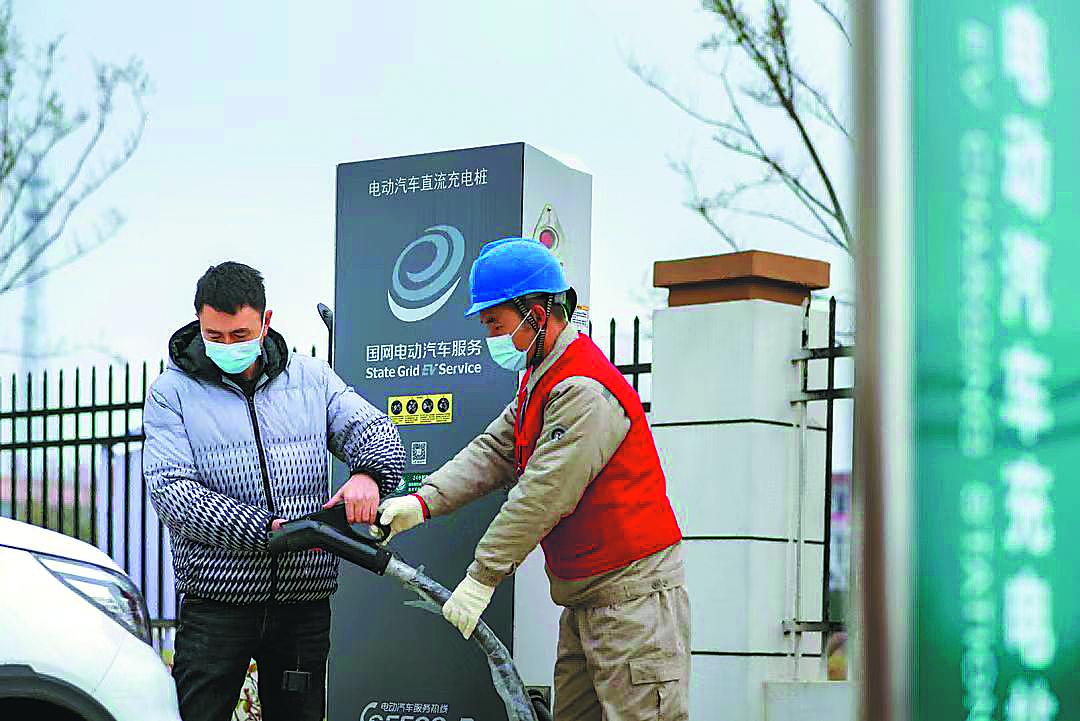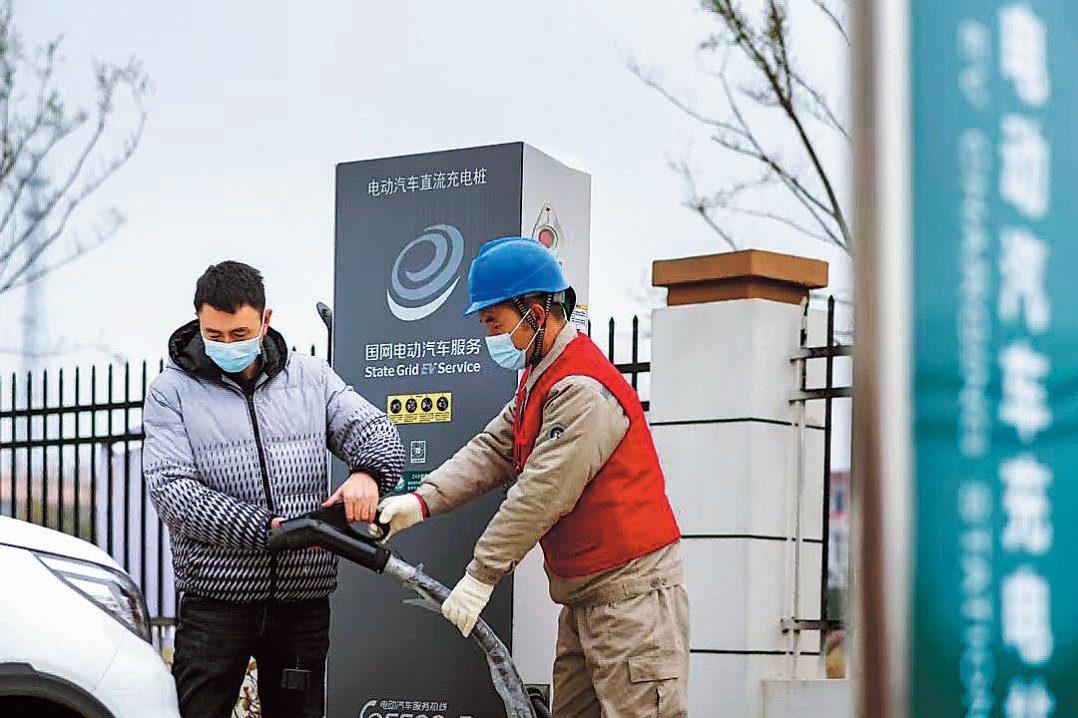
An anxious Jin Haiyang, owner of an electric vehicle, recently drove it to his hometown Suqian, a prefecture-level city in Jiangsu province, for the Spring Festival holiday.
There, a pleasant surprise, in the form of a convenient charging pole just outside the gate of his Fuyuan residential community in Sucheng district, ended his anxiety.
“I was initially worried whether or not I’d be able to recharge my EV in my hometown,” he said, noting the sight of ubiquitous EVs on the road somewhat assured him that power charging infrastructure may have already become part of everyday life in China.
Zhang Haijun, an employee from Suqian Power Supply Co of State Grid, said the national electricity transmitter had upgraded power electrification, including adding EV charging poles, in 31 residential communities of Suqian last year.
In all, 13,447 private EV charging poles were set up in the communities in 2023, up nearly 88 percent, he said, adding as the world’s largest utility, State Grid shoulders a dual responsibility of safeguarding the nation’s energy security and economic lifeline.
The China Association of Automobile Manufacturers said 9.5 million new energy vehicles, including EVs and plug-in hybrids, were sold last year in China, accounting for about 32 percent of total vehicle deliveries.
State Grid is aware of the latest NEV sales data and is therefore determined to boost the power charging network to meet growing demand for EV recharges, said Wu Dake, a staff member of State Grid Suqian Power Supply Co.
He noted that besides private EV charging poles, 2,400 public charging poles are operational in Suqian, and 2,000 more will be added at some 200 charging stations in the city over the next five years.
Comprising three counties in Shuyang, Siyang and Sihong, and Suyu and Sucheng districts, the city of Suqian has 67 townships and 28 urban sub-district offices with a total population of 5.85 million by the end of 2023.
More local residents are buying NEVs, leading them to seek a four-pronged approach to bolster the local EV charging work covering urban residential areas, government institutions, service areas along the expressways traversing the city and rural townships.
Besides electrification upgrades in urban residential areas, State Grid Suqian added 29 charging stations in the city’s Party and government institutions, as well as other public agencies in 2023, Wu said.
Their total recharging capacity in Suqian hit 47 million kilowatt-hours in 2023, up 49 percent, Wu said, adding that early last year, the company consulted 29 public institutions for their views on the expansion work.
Wu stressed that the service areas along the expressways are also part of the company’s focus.
He said the company has organized service teams to conduct special patrols in expressway service areas, examining 768 charging poles at 242 charging stations, as well as offering mobile charging services to NEVs from their multifunctional mobile energy-storage charging cars during the Spring Festival holiday.
Wu said the company’s staff members ensured each station was fully operational to avoid potential safety hazards related to the equipment.
At Yanghe Service Area along the Huai’an-Xuzhou Expressway in Jiangsu, Xu Jianqing said while charging his car: “The EV charging poles here make me feel assured.”
Zhang of Suqian Power Supply noted that currently, the expressway service areas are fully covered by the State Grid EV service. In the next step, the company will expand its EV service to cover all townships.
Zhang predicted that by 2035,3,000 more charging poles will likely be added citywide at some 300 charging stations.
[ad_2]
Source link




